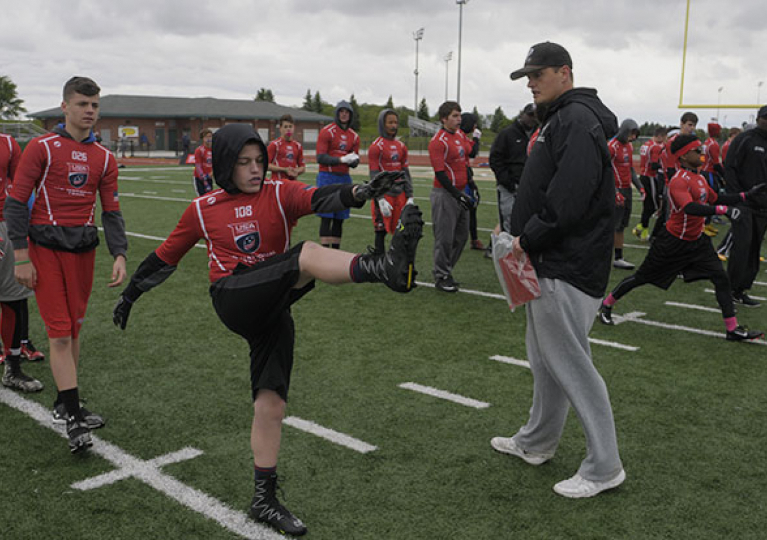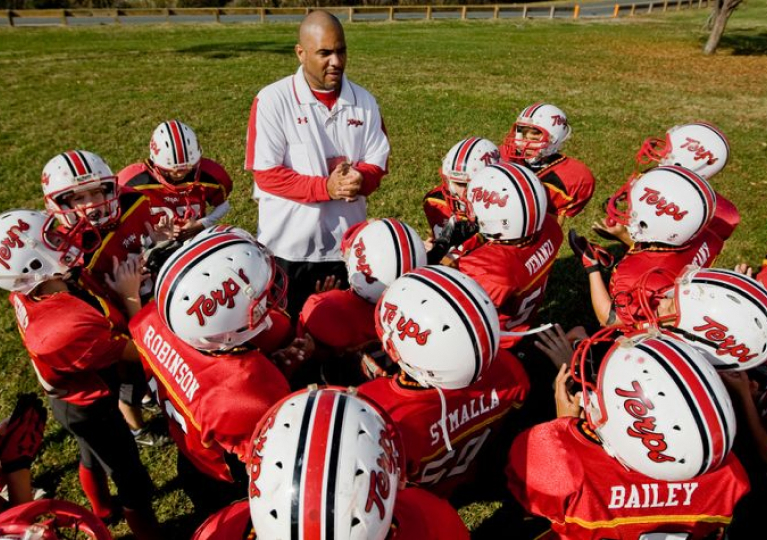Be it sports or anything else, all kids learn through play.
Young football players, who have fun on the field and are continuously engaged, tend to acquire the basic skills more easily. So, a personal football trainer or a team football coach should know how to make football training fun and motivating.
Here are five ways to make football training more fun:
- More Reps, Less Talk
Honestly, nobody likes listening to lengthy lectures. Children tend to have more fun during football practice when they are physically active and moving around. They are likely to get bored very easily if football practice begins to resemble literature or history class.
As a private football coach, you can limit your talks to a maximum of two to three minutes at the beginning and end of a training session. Pass on the instructions, tell them where to go on the field and just get started! If you must point out or explain something important between the plays, try to do it in less than 30 seconds!

Between the drills, (if needed) explain some important coaching points at once and let the kids follow through the instructions. Do not be on the lookout for a perfect rep out of the blue. Let them play. Yes, the kids need those perfect reps but to be able to do that, they would need to truly enjoy playing football.
- Celebrate a Player’s Success
Often, kids repeatedly make the same technical mistakes on the field. As a team coach or a private football coach, you should be patient and keep correcting them. As and when there is a breakthrough, make sure to point it out to the player and if possible, to his parents.
Keeping young footballers’ spirits up is not an easy task but if you calmly address the negative and call attention to the positive, your job is half-done.
- Use Variations to Kill the Boredom
Every once in a while, a football trainer should try changing the exercises or the activities players participate in during practice. On some occasions, you can even do it even without informing the players in advance.
For instance, a private football trainer can – focus on strength-training this week, take up strategic-training next week, and so on. Specialized training also helps children develop skill mastery over a period of time.
Routine and structure are of great importance in football training. But remember, variety helps keep boredom at bay.
- Spice It Up With Competition
You can spice up the daily training routine with some competition. It works for both kids and adults. Football players, young and old, do not like the idea of losing to their friends.
The whole thing does not have to be very elaborate or complicated; a private football coach need not maintain an excel sheet or award trophies and punishments to winners and losers.
It can be as simple as the losers cleaning up the pitch after football practice. You just need to raise the stakes slightly to keep it fun and exciting for everyone.
As players participate in ‘different’ types of competitions, they begin to develop a winning mentality. It also helps increase the overall intensity of practice sessions.
- Smile and Cheer
Yes, a football coach should behave in a professional and serious manner towards the players, regardless of whether they are high school footballers or eight-year-old kids. But it does not mean that you cannot smile and cheer.
Young footballers tend to imitate their coaches’ personality, temperament, and behavior. If they see that their coach is having fun, they too are more likely to find football practice enjoyable.

